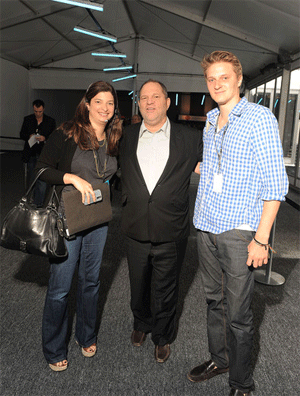Part 1 of 2
Michelle Marvin vs. Lee Marvinby Supreme Court of California
December 27, 1976
NOTICE: THIS WORK MAY BE PROTECTED BY COPYRIGHTYOU ARE REQUIRED TO READ
THE COPYRIGHT NOTICE AT THIS LINK BEFORE YOU READ THE FOLLOWING WORK, THAT IS AVAILABLE SOLELY FOR PRIVATE STUDY, SCHOLARSHIP OR RESEARCH PURSUANT TO 17 U.S.C. SECTION 107 AND 108. IN THE EVENT THAT THE LIBRARY DETERMINES THAT UNLAWFUL COPYING OF THIS WORK HAS OCCURRED, THE LIBRARY HAS THE RIGHT TO BLOCK THE I.P. ADDRESS AT WHICH THE UNLAWFUL COPYING APPEARED TO HAVE OCCURRED. THANK YOU FOR RESPECTING THE RIGHTS OF COPYRIGHT OWNERS.
18 Cal.3d 660 (1976)
557 P.2d 106
134 Cal. Rptr. 815
MICHELLE MARVIN, Plaintiff and Appellant,
v.
LEE MARVIN, Defendant and Respondent.
Docket No. L.A. 30520.
Supreme Court of California.
December 27, 1976.
COUNSEL
Marvin M. Mitchelson, Donald N. Woldman, Robert M. Ross, Fleishman, McDaniel, Brown & Weston and David M. Brown for Plaintiff and Appellant.
Jettie Pierce Selvig, Ruth Miller and Suzie S. Thorn as Amici Curiae on behalf of Plaintiff and Appellant.
Goldman & Kagon, Mark A. Goldman and William R. Bishin for Defendant and Respondent.
Herma Hill Kay, John Sutter, Doris Brin Walker and Treuhaft, Walker, Nawi & Hendon as Amici Curiae on behalf of Defendant and Respondent.
Isabella H. Grant and Livingston, Grant, Stone & Shenk as Amici Curiae.
OPINION
TOBRINER, J.
During the past 15 years, there has been a substantial increase in the number of couples living together without marrying.[1] Such nonmarital relationships lead to legal controversy when one partner dies or the couple separates.[/size][/b] Courts of Appeal, faced with the task of determining property rights in such cases, have arrived at conflicting positions: two cases (In re Marriage of Cary (1973) 34 Cal. App.3d 345 [109 Cal. Rptr. 862]; Estate of Atherley (1975) 44 Cal. App.3d 758 [119 Cal. Rptr. 41]) have held that the Family Law Act (Civ. Code, § 4000 et seq.) requires division of the property according to community property principles, and one decision (Beckman v. Mayhew (1975) 49 Cal. App.3d 529 [122 Cal. Rptr. 604]) has rejected that holding. We take this opportunity to resolve that controversy and to declare the principles which should govern distribution of property acquired in a nonmarital relationship.
We conclude: (1) The provisions of the Family Law Act do not govern the distribution of property acquired during a nonmarital relationship; such a relationship remains subject solely to judicial decision.
(2) The courts should enforce express contracts between nonmarital partners except to the extent that the contract is explicitly founded on the consideration of meretricious sexual services. (3) In the absence of an express contract, the courts should inquire into the conduct of the parties to determine whether that conduct demonstrates an implied contract, agreement of partnership or joint venture, or some other tacit understanding between the parties. The courts may also employ the doctrine of quantum meruit, or equitable remedies such as constructive or resulting trusts, when warranted by the facts of the case.
In the instant case plaintiff and defendant lived together for seven years without marrying; all property acquired during this period was taken in defendant's name. When plaintiff sued to enforce a contract under which she was entitled to half the property and to support payments, the trial court granted judgment on the pleadings for defendant, thus leaving him with all property accumulated by the couple during their relationship. Since the trial court denied plaintiff a trial on the merits of her claim, its decision conflicts with the principles stated above, and must be reversed.
1. The factual setting of this appeal.
(1) Since the trial court rendered judgment for defendant on the pleadings, we must accept the allegations of plaintiff's complaint as true, determining whether such allegations state, or can be amended to state, a cause of action. (See Sullivan v. County of Los Angeles (1974) 12 Cal.3d 710, 714-715, fn. 3 [117 Cal. Rptr. 241, 527 P.2d 865]; 4 Witkin, Cal. Procedure (2d ed. 1971) pp. 2817-2818.) We turn therefore to the specific allegations of the complaint.
Plaintiff avers that in October of 1964 she and defendant "entered into an oral agreement" that while "the parties lived together they would combine their efforts and earnings and would share equally any and all property accumulated as a result of their efforts whether individual or combined." Furthermore, they agreed to "hold themselves out to the general public as husband and wife" and that "plaintiff would further render her services as a companion, homemaker, housekeeper and cook to ... defendant."
Shortly thereafter plaintiff agreed to "give up her lucrative career as an entertainer [and] singer" in order to "devote her full time to defendant ... as a companion, homemaker, housekeeper and cook;" in return defendant agreed to "provide for all of plaintiff's financial support and needs for the rest of her life."
Plaintiff alleges that she lived with defendant from October of 1964 through May of 1970 and fulfilled her obligations under the agreement. During this period the parties as a result of their efforts and earnings acquired in defendant's name substantial real and personal property, including motion picture rights worth over $1 million. In May of 1970, however, defendant compelled plaintiff to leave his household. He continued to support plaintiff until November of 1971, but thereafter refused to provide further support.
On the basis of these allegations plaintiff asserts two causes of action. The first, for declaratory relief, asks the court to determine her contract and property rights; the second seeks to impose a constructive trust upon one half of the property acquired during the course of the relationship.
Defendant demurred unsuccessfully, and then answered the complaint. (2) (See fn. 2.) Following extensive discovery and pretrial proceedings, the case came to trial.[2] Defendant renewed his attack on the complaint by a motion to dismiss. Since the parties had stipulated that defendant's marriage to Betty Marvin did not terminate until the filing of a final decree of divorce in January 1967, the trial court treated defendant's motion as one for judgment on the pleadings augmented by the stipulation.
After hearing argument the court granted defendant's motion and entered judgment for defendant. Plaintiff moved to set aside the judgment and asked leave to amend her complaint to allege that she and defendant reaffirmed their agreement after defendant's divorce was final. The trial court denied plaintiff's motion, and she appealed from the judgment.
2. (3a) Plaintiff's complaint states a cause of action for breach of an express contract.
In Trutalli v. Meraviglia (1932) 215 Cal. 698 [12 P.2d 430] we established the principle that nonmarital partners may lawfully contract concerning the ownership of property acquired during the relationship. We reaffirmed this principle in Vallera v. Vallera (1943) 21 Cal.2d 681, 685 [134 P.2d 761], stating that "If a man and woman [who are not married] live together as husband and wife under an agreement to pool their earnings and share equally in their joint accumulations, equity will protect the interests of each in such property."
In the case before us plaintiff, basing her cause of action in contract upon these precedents, maintains that the trial court erred in denying her a trial on the merits of her contention. Although that court did not specify the ground for its conclusion that plaintiff's contractual allegations stated no cause of action,[3] defendant offers some four theories to sustain the ruling; we proceed to examine them.
Defendant first and principally relies on the contention that the alleged contract is so closely related to the supposed "immoral" character of the relationship between plaintiff and himself that the enforcement of the contract would violate public policy.[4] He points to cases asserting that a contract between nonmarital partners is unenforceable if it is "involved in" an illicit relationship (see Shaw v. Shaw (1964) 227 Cal. App.2d 159, 164 [38 Cal. Rptr. 520] (dictum); Garcia v. Venegas (1951) 106 Cal. App.2d 364, 368 [235 P.2d 89] (dictum), or made in "contemplation" of such a relationship (Hill v. Estate of Westbrook (1950) 95 Cal. App.2d 599, 602 [213 P.2d 727]; see Hill v. Estate of Westbrook (1952) 39 Cal.2d 458, 460 [247 P.2d 19]; Barlow v. Collins (1958) 166 Cal. App.2d 274, 277 [333 P.2d 64] (dictum); Bridges v. Bridges (1954) 125 Cal. App.2d 359, 362 [270 P.2d 69] (dictum)). A review of the numerous California decisions concerning contracts between nonmarital partners, however, reveals that the courts have not employed such broad and uncertain standards to strike down contracts.
The decisions instead disclose a narrower and more precise standard: a contract between nonmarital partners is unenforceable only to the extent that it explicitly rests upon the immoral and illicit consideration of meretricious sexual services.In the first case to address this issue, Trutalli v. Meraviglia, supra, 215 Cal. 698, the parties had lived together without marriage for 11 years and had raised two children. The man sued to quiet title to land he had purchased in his own name during this relationship; the woman defended by asserting an agreement to pool earnings and hold all property jointly. Rejecting the assertion of the illegality of the agreement, the court stated that "The fact that the parties to this action at the time they agreed to invest their earnings in property to be held jointly between them were living together in an unlawful relation, did not disqualify them from entering into a lawful agreement with each other, so long as such immoral relation was not made a consideration of their agreement." (Italics added.) (215 Cal. at pp. 701-702.)
In Bridges v. Bridges, supra, 125 Cal. App.2d 359 [270 P.2d 69], both parties were in the process of obtaining divorces from their erstwhile respective spouses. The two parties agreed to live together, to share equally in property acquired, and to marry when their divorces became final. The man worked as a salesman and used his savings to purchase properties. The woman kept house, cared for seven children, three from each former marriage and one from the nonmarital relationship, and helped construct improvements on the properties. When they separated, without marrying, the court awarded the woman one-half the value of the property. Rejecting the man's contention that the contract was illegal, the court stated that: "Nowhere is it expressly testified to by anyone that there was anything in the agreement for the pooling of assets and the sharing of accumulations that contemplated meretricious relations as any part of the consideration or as any object of the agreement." (125 Cal. App.2d at p. 363.)
Croslin v. Scott (1957) 154 Cal. App.2d 767 [316 P.2d 755] reiterates the rule established in Trutalli and Bridges. In Croslin the parties separated following a three-year nonmarital relationship. The woman then phoned the man, asked him to return to her, and suggested that he build them a house on a lot she owned. She agreed in return to place the property in joint ownership. The man built the house, and the parties lived there for several more years. When they separated, he sued to establish his interest in the property. Reversing a nonsuit, the Court of Appeal stated that "The mere fact that parties agree to live together in meretricious relationship does not necessarily make an agreement for disposition of property between them invalid. It is only when the property agreement is made in connection with the other agreement, or the illicit relationship is made a consideration of the property agreement, that the latter becomes illegal." (154 Cal. App.2d at p. 771.)
Numerous other cases have upheld enforcement of agreements between nonmarital partners in factual settings essentially indistinguishable from the present case. (In re Marriage of Foster (1974) 42 Cal. App.3d 577 [117 Cal. Rptr. 49]; Weak v. Weak, supra, 202 Cal. App.2d 632, 639; Ferguson v. Schuenemann (1959) 167 Cal. App.2d 413 [334 P.2d 668]; Barlow v. Collins, supra, 166 Cal. App.2d 274, 277-278; Ferraro v. Ferraro (1956) 146 Cal. App.2d 849 [304 P.2d 168]; Cline v. Festersen (1954) 128 Cal. App.2d 380 [275 P.2d 149]; Profit v. Profit (1953) 117 Cal. App.2d 126 [255 P.2d 25]; Garcia v. Venegas, supra, 106 Cal. App.2d 364; Padilla v. Padilla (1940) 38 Cal. App.2d 319 [100 P.2d 1093]; Bacon v. Bacon (1937) 21 Cal. App.2d 540 [69 P.2d 884].)[5]
Although the past decisions hover over the issue in the somewhat wispy form of the figures of a Chagall painting, we can abstract from those decisions a clear and simple rule. (4) The fact that a man and woman live together without marriage, and engage in a sexual relationship, does not in itself invalidate agreements between them relating to their earnings, property, or expenses. Neither is such an agreement invalid merely because the parties may have contemplated the creation or continuation of a nonmarital relationship when they entered into it.
Agreements between nonmarital partners fail only to the extent that they rest upon a consideration of meretricious sexual services. Thus the rule asserted by defendant, that a contract fails if it is "involved in" or made "in contemplation" of a nonmarital relationship, cannot be reconciled with the decisions.
The three cases cited by defendant which have declined to enforce contracts between nonmarital partners involved consideration that was expressly founded upon an illicit sexual services. In Hill v. Estate of Westbrook, supra, 95 Cal. App.2d 599, the woman promised to keep house for the man, to live with him as man and wife, and to bear his children; the man promised to provide for her in his will, but died without doing so. Reversing a judgment for the woman based on the reasonable value of her services, the Court of Appeal stated that "the action is predicated upon a claim which seeks, among other things, the reasonable value of living with decedent in meretricious relationship and bearing him two children.... The law does not award compensation for living with a man as a concubine and bearing him children.... As the judgment is at least in part, for the value of the claimed services for which recovery cannot be had, it must be reversed." (95 Cal. App.2d at p. 603.) Upon retrial, the trial court found that it could not sever the contract and place an independent value upon the legitimate services performed by claimant. We therefore affirmed a judgment for the estate. (Hill v. Estate of Westbrook (1952) 39 Cal.2d 458 [247 P.2d 19].)
In the only other cited decision refusing to enforce a contract, Updeck v. Samuel (1954) 123 Cal. App.2d 264 [266 P.2d 822], the contract "was based on the consideration that the parties live together as husband and wife." (123 Cal. App.2d at p. 267.) Viewing the contract as calling for adultery, the court held it illegal.[6]
The decisions in the Hill and Updeck cases thus demonstrate that a contract between nonmarital partners, even if expressly made in contemplation of a common living arrangement, is invalid only if sexual acts form an inseparable part of the consideration for the agreement. In sum, a court will not enforce a contract for the pooling of property and earnings if it is explicitly and inseparably based upon services as a paramour. The Court of Appeal opinion in Hill, however, indicates that even if sexual services are part of the contractual consideration, any severable portion of the contract supported by independent consideration will still be enforced.
The principle that a contract between nonmarital partners will be enforced unless expressly and inseparably based upon an illicit consideration of sexual services not only represents the distillation of the decisional law, but also offers a far more precise and workable standard than that advocated by defendant. Our recent decision in In re Marriage of Dawley (1976) 17 Cal.3d 342 [131 Cal. Rptr. 3, 551 P.2d 323] offers a close analogy. Rejecting the contention that an antenuptial agreement is invalid if the parties contemplated a marriage of short duration, we pointed out in Dawley that a standard based upon the subjective contemplation of the parties is uncertain and unworkable; such a test, we stated, "might invalidate virtually all antenuptial agreements on the ground that the parties contemplated dissolution ... but it provides no principled basis for determining which antenuptial agreements offend public policy and which do not." (17 Cal.3d 342, 352.)
Similarly, in the present case a standard which inquires whether an agreement is "involved" in or "contemplates" a nonmarital relationship is vague and unworkable. Virtually all agreements between nonmarital partners can be said to be "involved" in some sense in the fact of their mutual sexual relationship, or to "contemplate" the existence of that relationship. Thus defendant's proposed standards, if taken literally, might invalidate all agreements between nonmarital partners, a result no one favors. Moreover, those standards offer no basis to distinguish between valid and invalid agreements. By looking not to such uncertain tests, but only to the consideration underlying the agreement, we provide the parties and the courts with a practical guide to determine when an agreement between nonmarital partners should be enforced.
(5) Defendant secondly relies upon the ground suggested by the trial court: that the 1964 contract violated public policy because it impaired the community property rights of Betty Marvin, defendant's lawful wife. Defendant points out that his earnings while living apart from his wife before rendition of the interlocutory decree were community property under 1964 statutory law (former Civ. Code, §§ 169, 169.2)[7] and that defendant's agreement with plaintiff purported to transfer to her a half interest in that community property. But whether or not defendant's contract with plaintiff exceeded his authority as manager of the community property (see former Civ. Code, § 172), defendant's argument fails for the reason that
an improper transfer of community property is not void ab initio, but merely voidable at the instance of the aggrieved spouse. See Ballinger v. Ballinger (1937) 9 Cal.2d 330, 334 [70 P.2d 629; Trimble v. Trimble (1933) 219 Cal. 340, 344 [26 P.2d 477].)
In the present case Betty Marvin, the aggrieved spouse, had the opportunity to assert her community property rights in the divorce action. (See Babbitt v. Babbitt (1955) 44 Cal.2d 289, 293 [282 P.2d 1].) The interlocutory and final decrees in that action fix and limit her interest. Enforcement of the contract between plaintiff and defendant against property awarded to defendant by the divorce decree will not impair any right of Betty's, and thus is not on that account violative of public policy.[8]
(6) Defendant's third contention is noteworthy for the lack of authority advanced in its support. He contends that enforcement of the oral agreement between plaintiff and himself is barred by Civil Code section 5134, which provides that "All contracts for marriage settlements must be in writing...." A marriage settlement, however, is an agreement in contemplation of marriage in which each party agrees to release or modify the property rights which would otherwise arise from the marriage. (See Corker v. Corker (1891) 87 Cal. 643, 648 [25 P. 922].) The contract at issue here does not conceivably fall within that definition, and thus is beyond the compass of section 5134.[9]
(7) Defendant finally argues that enforcement of the contract is barred by Civil Code section 43.5, subdivision (d), which provides that "No cause of action arises for ... breach of promise of marriage." This rather strained contention proceeds from the premise that a promise of marriage impliedly includes a promise to support and to pool property acquired after marriage (see Boyd v. Boyd (1964) 228 Cal. App.2d 374 [39 Cal. Rptr. 400]) to the conclusion that pooling and support agreements not part of or accompanied by promise of marriage are barred by the section. We conclude that section 43.5 is not reasonably susceptible to the interpretation advanced by defendant, a conclusion demonstrated by the fact that since section 43.5 was enacted in 1939, numerous cases have enforced pooling agreements between nonmarital partners, and in none did court or counsel refer to section 43.5.
(3b) In summary, we base our opinion on the principle that adults who voluntarily live together and engage in sexual relations are nonetheless as competent as any other persons to contract respecting their earnings and property rights.
Of course, they cannot lawfully contract to pay for the performance of sexual services, for such a contract is, in essence, an agreement for prostitution and unlawful for that reason. But they may agree to pool their earnings and to hold all property acquired during the relationship in accord with the law governing community property; conversely they may agree that each partner's earnings and the property acquired from those earnings remains the separate property of the earning partner.[10] So long as the agreement does not rest upon illicit meretricious consideration, the parties may order their economic affairs as they choose, and no policy precludes the courts from enforcing such agreements.
In the present instance, plaintiff alleges that the parties agreed to pool their earnings, that they contracted to share equally in all property acquired, and that defendant agreed to support plaintiff. The terms of the contract as alleged do not rest upon any unlawful consideration. We therefore conclude that the complaint furnishes a suitable basis upon which the trial court can render declaratory relief. (See 3 Witkin, Cal. Procedure (2d ed.) pp. 2335-2336.) The trial court consequently erred in granting defendant's motion for judgment on the pleadings.
3. (8a) Plaintiff's complaint can be amended to state a cause of action founded upon theories of implied contract or equitable relief.
As we have noted, both causes of action in plaintiff's complaint allege an express contract; neither assert any basis for relief independent from the contract. In In re Marriage of Cary, supra, 34 Cal. App.3d 345, however, the Court of Appeal held that, in view of the policy of the Family Law Act, property accumulated by nonmarital partners in an actual family relationship should be divided equally. Upon examining the Cary opinion, the parties to the present case realized that plaintiff's alleged relationship with defendant might arguably support a cause of action independent of any express contract between the parties. The parties have therefore briefed and discussed the issue of the property rights of a nonmarital partner in the absence of an express contract. Although our conclusion that plaintiff's complaint states a cause of action based on an express contract alone compels us to reverse the judgment for defendant, resolution of the Cary issue will serve both to guide the parties upon retrial and to resolve a conflict presently manifest in published Court of Appeal decisions.
Both plaintiff and defendant stand in broad agreement that the law should be fashioned to carry out the reasonable expectations of the parties. Plaintiff, however, presents the following contentions: that the decisions prior to Cary rest upon implicit and erroneous notions of punishing a party for his or her guilt in entering into a nonmarital relationship, that such decisions result in an inequitable distribution of property accumulated during the relationship, and that Cary correctly held that the enactment of the Family Law Act in 1970 overturned those prior decisions. Defendant in response maintains that the prior decisions merely applied common law principles of contract and property to persons who have deliberately elected to remain outside the bounds of the community property system.[11] Cary, defendant contends, erred in 676*676 holding that the Family Law Act vitiated the force of the prior precedents.
As we shall see from examination of the pre-Cary decisions, the truth lies somewhere between the positions of plaintiff and defendant. The classic opinion on this subject is Vallera v. Vallera, supra, 21 Cal.2d 681. Speaking for a four-member majority, Justice Traynor posed the question: "whether a woman living with a man as his wife but with no genuine belief that she is legally married to him acquires by reason of cohabitation alone the rights of a co-tenant in his earnings and accumulations during the period of their relationship." (21 Cal.2d at p. 684.) Citing Flanagan v. Capital Nat. Bank (1931) 213 Cal. 664 [3 P.2d 307], which held that a nonmarital "wife" could not claim that her husband's estate was community property, the majority answered that question "in the negative." (Pp. 684-685.) Vallera explains that "Equitable considerations arising from the reasonable expectation of the continuation of benefits attending the status of marriage entered into in good faith are not present in such a case." (P. 685.) In the absence of express contract, Vallera concluded, the woman is entitled to share in property jointly accumulated only "in the proportion that her funds contributed toward its acquisition." (P. 685.) Justice Curtis, dissenting, argued that the evidence showed an implied contract under which each party owned an equal interest in property acquired during the relationship.
The majority opinion in Vallera did not expressly bar recovery based upon an implied contract, nor preclude resort to equitable remedies. But Vallera's broad assertion that equitable considerations "are not present" in the case of a nonmarital relationship (21 Cal.2d at p. 685) led the Courts of Appeal to interpret the language to preclude recovery based on such theories. (See Lazzarevich v. Lazzarevich (1948) 88 Cal. App.2d 708, 677*677 719 [200 P.2d 49]; Oakley v. Oakley (1947) 82 Cal. App.2d 188, 191-192 [185 P.2d 848].)[12]
Consequently, when the issue of the rights of a nonmarital partner reached this court in Keene v. Keene (1962) 57 Cal.2d 657 [21 Cal. Rptr. 593, 371 P.2d 329], the claimant forwent reliance upon theories of contract implied in law or fact. Asserting that she had worked on her partner's ranch and that her labor had enhanced its value, she confined her cause of action to the claim that the court should impress a resulting trust on the property derived from the sale of the ranch. The court limited its opinion accordingly, rejecting her argument on the ground that the rendition of services gives rise to a resulting trust only when the services aid in acquisition of the property, not in its subsequent improvement. (57 Cal.2d at p. 668.) Justice Peters, dissenting, attacked the majority's distinction between the rendition of services and the contribution of funds or property; he maintained that both property and services furnished valuable consideration, and potentially afforded the ground for a resulting trust.
This failure of the courts to recognize an action by a nonmarital partner based upon implied contract, or to grant an equitable remedy, contrasts with the judicial treatment of the putative spouse. Prior to the enactment of the Family Law Act, no statute granted rights to a putative spouse.[13] The courts accordingly fashioned a variety of remedies by judicial decision. Some cases permitted the putative spouse to recover half the property on a theory that the conduct of the parties implied an agreement of partnership or joint venture. (See Estate of Vargas (1974) 36 Cal. App.3d 714, 717-718 [111 Cal. Rptr. 779]; Sousa v. Freitas (1970) 10 Cal. App.3d 660, 666 [89 Cal. Rptr. 485].) Others permitted the spouse to recover the reasonable value of rendered services, less the value of support received. (See Sanguinetti v. Sanguinetti (1937) 9 Cal.2d 95, 100-102 [69 P.2d 845, 111 A.L.R. 342].)[14] Finally, decisions affirmed the power of a court to employ equitable principles to achieve a fair division of property acquired during putative marriage. (Coats v. Coats (1911) 160 Cal. 671, 677-678 [118 P. 441]; Caldwell v. Odisio (1956) 142 Cal. App.2d 732, 735 [299 P.2d 14].)[15]
Thus in summary, the cases prior to Cary exhibited a schizophrenic inconsistency. By enforcing an express contract between nonmarital partners unless it rested upon an unlawful consideration, the courts applied a common law principle as to contracts. Yet the courts disregarded the common law principle that holds that implied contracts can arise from the conduct of the parties.[16] Refusing to enforce such contracts, the courts spoke of leaving the parties "in the position in which they had placed themselves" (Oakley v. Oakley, supra, 82 Cal. App.2d 188, 192), just as if they were guilty parties in pari delicto.
Justice Curtis noted this inconsistency in his dissenting opinion in Vallera, pointing out that "if an express agreement will be enforced, there is no legal or just reason why an implied agreement to share the property cannot be enforced." (21 Cal.2d 681, 686; see Bruch, Property Rights of De Facto Spouses Including Thoughts on the Value of Homemakers' Services (1976) 10 Family L.Q. 101, 117-121.) And in Keene v. Keene, supra, 57 Cal.2d 657, Justice Peters observed that if the man and woman "were not illegally living together ... it would be a plain business relationship and a contract would be implied." (Dis. opn. at p. 672.)
Still another inconsistency in the prior cases arises from their treatment of property accumulated through joint effort. To the extent that a partner had contributed funds or property, the cases held that the partner obtains a proportionate share in the acquisition, despite the lack of legal standing of the relationship. (Vallera v. Vallera, supra, 21 Cal.2d at p. 685; see Weak v. Weak, supra, 202 Cal. App.2d 632, 639.) Yet courts have refused to recognize just such an interest based upon the contribution of services. As Justice Curtis points out "Unless it can be argued that a woman's services as cook, housekeeper, and homemaker are valueless, it would seem logical that if, when she contributes money to the purchase of property, her interest will be protected, then when she contributes her services in the home, her interest in property accumulated should be protected." (Vallera v. Vallera, supra, 21 Cal.2d 681, 686-687 (dis. opn.); see Bruch, op. cit., supra, 10 Family L.Q. 101, 110-114; Article, Illicit Cohabitation: The Impact of the Vallera and Keene Cases on the Rights of the Meretricious Spouse (1973) 6 U.C. Davis L.Rev. 354, 369-370; Comment (1972) 48 Wash.L.Rev. 635, 641.)
Thus as of 1973, the time of the filing of In re Marriage of Cary, supra, 34 Cal. App.3d 345, the cases apparently held that a nonmarital partner who rendered services in the absence of express contract could assert no right to property acquired during the relationship. The facts of Cary demonstrated the unfairness of that rule.
Janet and Paul Cary had lived together, unmarried, for more than eight years. They held themselves out to friends and family as husband and wife, reared four children, purchased a home and other property, obtained credit, filed joint income tax returns, and otherwise conducted themselves as though they were married. Paul worked outside the home, and Janet generally cared for the house and children.
In 1971 Paul petitioned for "nullity of the marriage."[17] Following a hearing on that petition, the trial court awarded Janet half the property acquired during the relationship, although all such property was traceable to Paul's earnings. The Court of Appeal affirmed the award.
Reviewing the prior decisions which had denied relief to the homemaking partner, the Court of Appeal reasoned that those decisions rested upon a policy of punishing persons guilty of cohabitation without marriage. The Family Law Act, the court observed, aimed to eliminate fault or guilt as a basis for dividing marital property. But once fault or guilt is excluded, the court reasoned, nothing distinguishes the property rights of a nonmarital "spouse" from those of a putative spouse. Since the latter is entitled to half the "`quasi marital property'" (Civ. Code, § 4452), the Court of Appeal concluded that, giving effect to the policy of the Family Law Act, a nonmarital cohabitator should also be entitled to half the property accumulated during an "actual family relationship." (34 Cal. App.3d at p. 353.)[18]
Cary met with a mixed reception in other appellate districts. In Estate of Atherley, supra, 44 Cal. App.3d 758, the Fourth District agreed with Cary that under the Family Law Act a nonmarital partner in an actual family relationship enjoys the same right to an equal division of property as a putative spouse. In Beckman v. Mayhew, supra, 49 Cal. App.3d 529, however, the Third District rejected Cary on the ground that the Family Law Act was not intended to change California law dealing with nonmarital relationships.
(9) If Cary is interpreted as holding that the Family Law Act requires an equal division of property accumulated in nonmarital "actual family relationships," then we agree with Beckman v. Mayhew that Cary distends the act. No language in the Family Law Act addresses the property rights of nonmarital partners, and nothing in the legislative history of the act suggests that the Legislature considered that subject.[19] The delineation of the rights of nonmarital partners before 1970 had been fixed entirely by judicial decision; we see no reason to believe that the Legislature, by enacting the Family Law Act, intended to change that state of affairs.
But although we reject the reasoning of Cary and Atherley, we share the perception of the Cary and Atherley courts that the application of former precedent in the factual setting of those cases would work an unfair distribution of the property accumulated by the couple. Justice Friedman in Beckman v. Mayhew, supra, 49 Cal. App.3d 529, 535, also questioned the continued viability of our decisions in Vallera and Keene; commentators have argued the need to reconsider those precedents.[20] We should not, therefore, reject the authority of Cary and Atherley without also examining the deficiencies in the former law which led to those decisions.
The principal reason why the pre-Cary decisions result in an unfair distribution of property inheres in the court's refusal to permit a nonmarital partner to assert rights based upon accepted principles of implied contract or equity. We have examined the reasons advanced to justify this denial of relief, and find that none have merit.
First, we note that the cases denying relief do not rest their refusal upon any theory of "punishing" a "guilty" partner. Indeed, to the extent that denial of relief "punishes" one partner, it necessarily rewards the other by permitting him to retain a disproportionate amount of the property. Concepts of "guilt" thus cannot justify an unequal division of property between two equally "guilty" persons.[21]
Other reasons advanced in the decisions fare no better. The principal argument seems to be that "[e]quitable considerations arising from the reasonable expectation of ... benefits attending the status of marriage ... are not present [in a nonmarital relationship]." (Vallera v. Vallera, supra, 21 Cal.2d at p. 685.) But, although parties to a nonmarital relationship obviously cannot have based any expectations upon the belief that they were married, other expectations and equitable considerations remain. The parties may well expect that property will be divided in accord with the parties' own tacit understanding and that in the absence of such understanding the courts will fairly apportion property accumulated through mutual effort. We need not treat nonmarital partners as putatively married persons in order to apply principles of implied contract, or extend equitable remedies; we need to treat them only as we do any other unmarried persons.[22]
The remaining arguments advanced from time to time to deny remedies to the nonmarital partners are of less moment. There is no more reason to presume that services are contributed as a gift than to presume that funds are contributed as a gift; in any event the better approach is to presume, as Justice Peters suggested, "that the parties intend to deal fairly with each other." (Keene v. Keene, supra, 57 Cal.2d 657, 674 (dissenting opn.); see Bruch, op. cit., supra, 10 Family L.Q. 101, 113.)
The argument that granting remedies to the nonmarital partners would discourage marriage must fail; as Cary pointed out, "with equal or greater force the point might be made that the pre-1970 rule was calculated to cause the income-producing partner to avoid marriage and thus retain the benefit of all of his or her accumulated earnings." (34 Cal. App.3d at p. 353.) Although we recognize the well-established public policy to foster and promote the institution of marriage (see Deyoe v. Superior Court (1903) 140 Cal. 476, 482 [74 P. 28]), perpetuation of judicial rules which result in an inequitable distribution of property accumulated during a nonmarital relationship is neither a just nor an effective way of carrying out that policy.
In summary, we believe that the prevalence of nonmarital relationships in modern society and the social acceptance of them, marks this as a time when our courts should by no means apply the doctrine of the unlawfulness of the so-called meretricious relationship to the instant case. As we have explained, the nonenforceability of agreements expressly providing for meretricious conduct rested upon the fact that such conduct, as the word suggests, pertained to and encompassed prostitution. To equate the nonmarital relationship of today to such a subject matter is to do violence to an accepted and wholly different practice.
We are aware that many young couples live together without the solemnization of marriage, in order to make sure that they can successfully later undertake marriage. This trial period,[23] preliminary to marriage, serves as some assurance that the marriage will not subsequently end in dissolution to the harm of both parties. We are aware, as we have stated, of the pervasiveness of nonmarital relationships in other situations.
The mores of the society have indeed changed so radically in regard to cohabitation that we cannot impose a standard based on alleged moral considerations that have apparently been so widely abandoned by so many. Lest we be misunderstood, however, we take this occasion to point out that the structure of society itself largely depends upon the institution of marriage, and nothing we have said in this opinion should be taken to derogate from that institution. The joining of the man and woman in marriage is at once the most socially productive and individually fulfilling relationship that one can enjoy in the course of a lifetime.
(8b) We conclude that the judicial barriers that may stand in the way of a policy based upon the fulfillment of the reasonable expectations of the parties to a nonmarital relationship should be removed. As we have explained, the courts now hold that express agreements will be enforced unless they rest on an unlawful meretricious consideration. We add that in the absence of an express agreement, the courts may look to a variety of other remedies in order to protect the parties' lawful expectations.[24]
The courts may inquire into the conduct of the parties to determine whether that conduct demonstrates an implied contract or implied agreement of partnership or joint venture (see Estate of Thornton (1972) 81 Wn.2d 72 [499 P.2d 864]), or some other tacit understanding between the parties. The courts may, when appropriate, employ principles of constructive trust (see Omer v. Omer (1974) 11 Wash. App. 386 [523 P.2d 957]) or resulting trust (see Hyman v. Hyman (Tex.Civ.App. 1954) 275 S.W.2d 149). Finally, a nonmarital partner may recover in quantum meruit for the reasonable value of household services rendered less the reasonable value of support received if he can show that he rendered services with the expectation of monetary reward. (See Hill v. Estate of Westbrook, supra, 39 Cal.2d 458, 462.)[25]
Since we have determined that plaintiff's complaint states a cause of action for breach of an express contract, and, as we have explained, can be amended to state a cause of action independent of allegations of express contract,[26] we must conclude that the trial court erred in granting defendant a judgment on the pleadings.
The judgment is reversed and the cause remanded for further proceedings consistent with the views expressed herein.[27]
Wright, C.J., McComb, J., Mosk, J., Sullivan, J., and Richardson, J., concurred.
CLARK, J., Concurring and Dissenting.
The majority opinion properly permit recovery on the basis of either express or implied in fact agreement between the parties. These being the issues presented, their resolution requires reversal of the judgment. Here, the opinion should stop.
This court should not attempt to determine all anticipated rights, duties and remedies within every meretricious relationship — particularly in vague terms. Rather, these complex issues should be determined as each arises in a concrete case.
The majority broadly indicate that a party to a meretricious relationship may recover on the basis of equitable principles and in quantum meruit. However, the majority fail to advise us of the circumstances permitting recovery, limitations on recovery, or whether their numerous remedies are cumulative or exclusive. Conceivably, under the majority opinion a party may recover half of the property acquired during the relationship on the basis of general equitable principles, recover a bonus based on specific equitable considerations, and recover a second bonus in quantum meruit.
The general sweep of the majority opinion raises but fails to answer several questions. First, because the Legislature specifically excluded some parties to a meretricious relationship from the equal division rule of Civil Code section 4452, is this court now free to create an equal division rule? Second, upon termination of the relationship, is it equitable to impose the economic obligations of lawful spouses on meretricious parties when the latter may have rejected matrimony to avoid such obligations? Third, does not application of equitable principles — necessitating examination of the conduct of the parties — violate the spirit of the Family Law Act of 1969, designed to eliminate the bitterness and acrimony resulting from the former fault system in divorce? Fourth, will not application of equitable principles reimpose upon trial courts the unmanageable burden of arbitrating domestic disputes? Fifth, will not a quantum meruit system of compensation for services — discounted by benefits received — place meretricious spouses in a better position than lawful spouses? Sixth, if a quantum meruit system is to be allowed, does fairness not require inclusion of all services and all benefits regardless of how difficult the evaluation?
When the parties to a meretricious relationship show by express or implied in fact agreement they intend to create mutual obligations, the courts should enforce the agreement. However, in the absence of agreement, we should stop and consider the ramifications before creating economic obligations which may violate legislative intent, contravene the intention of the parties, and surely generate undue burdens on our trial courts.
By judicial overreach, the majority perform a nunc pro tunc marriage, dissolve it, and distribute its property on terms never contemplated by the parties, case law or the Legislature.









